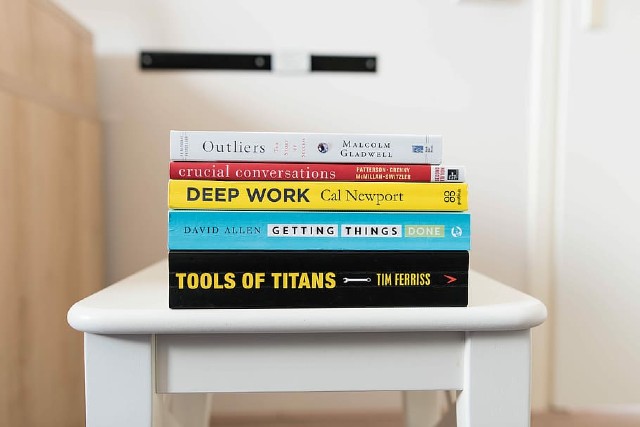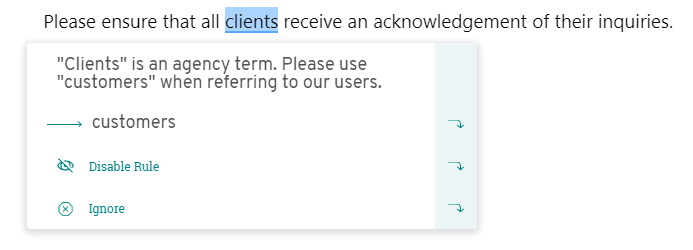
Charles T. Munger once said, “Spend each day trying to be wiser.”
I couldn’t have said it better myself.
Many people live their lives on autopilot. They do the same thing every day and never learn anything new. Then they wonder how some people became so successful.
Here's the thing: successful people are voracious readers.
- Elon Musk learned how to build rockets by reading books
- Warren Buffet reads 500 pages a day
- Bill Gates reads 50 books a year
If these busy people can find time to read, so can you.
Running a business is tough, and if you don't have the right information, the experience can be downright unpleasant. The best business books can help you to stay ahead of business and technology trends. Reading not only helps you to acquire new information, it diversifies your perspective and makes you think creatively.
However, hundreds of business books are published every year and it’s impossible to read them all. So, how do you choose the books that will have a positive impact on you and your business?
I’ve separated the good from the great and picked ten that I highly recommend. If you’re building your business book reading list for the first time, start right here!
- 1. Business Adventures by John Brooks
- 2. The Innovator’s Dilemma by Clayton M. Christensen
- 3. Getting Things Done by David Allen
- 4. Crushing It! by Gary Vaynerchuk
- 5. The E-Myth Revisited by Michael E. Gerber
- 6. Profit First by Mike Michalowicz
- 7. Deep Work by Cal Newport
- 8. Blue Ocean Strategy by W. Chan Kim and Renée Mauborgne
- 9. The Hard Thing About Hard Things by Ben Horowitz
- 10. Shoe Dog by Phil Knight
1. Business Adventures by John Brooks
This book is all about pivotal moments that shaped the modern U.S. economy. Brooks writes about 12 business war stories, including the fall of the Ford Edsel, the spectacular rise of Xerox, a popular insider-trading case, and how corporations attempted to protect trade secrets.
Each story is an example of how a successful company was defined by a particular moment of notoriety or fame. The fascinating accounts in Business Adventures will help you understand the intricacies of corporate life. Unlike many business writers of his time, Brooks uses understated wit, vivid characters, and restrained drama.
Bill Gates and Warren Buffet both recommend this great business book. Gates says it’s one of the best business books he's ever read.
2. The Innovator’s Dilemma by Clayton M. Christensen
Innovation expert Clayton M. Christensen explains how even the most brilliant companies can do everything right and fail to be market leaders. This book has been quoted by the world’s best thought leaders, from Malcolm Gladwell to Steve Jobs. It was one of Steve Jobs’ favorite books and deeply influenced his life.
The Innovator’s Dilemma has a clear message: innovations that cause brands to grow require taking risks that most businesses find unacceptable. Disruptive innovation, which usually drives growth, needs a vision, patience, and nerve. Most businesses lack these qualities and choose short-term profitability over long-term growth.
Most big brands avoid small, new niches that are yet to take off, and that's where growth opportunities usually lie – not in stable, mature markets. The Innovator's Dilemma is sharp, provocative, and convincing and is a must-read for every entrepreneur.
3. Getting Things Done by David Allen

Getting Things Done provides a simple yet detailed system for enhancing your productivity. The system, which is also known as GTD, will help you to become more productive. It’s all about asking one simple question, "what should I do next to get closer to my goal?" GTD is an excellent system because it makes tasks simple enough to handle and therefore reduces procrastination.
Getting Things Done was published in 2001 and quickly became a national bestseller. David Allen's philosophy is that to be your most productive self, you must be able to think clearly. He gives pointers for using your critical thinking skills and shares three decision-making methods on what actions to take.
This book is all about mastering your time. It is part psychology, part technique. When you learn how to master your time, you will become more successful.
4. Crushing It! by Gary Vaynerchuk
Back in 2009, Gary Vaynerchuk wrote the bestselling book Crush It! Almost ten years later (in 2017), he wrote Crushing It! The book tells the stories of entrepreneurs who implemented the advice he gave in his earlier book and built personal brands. Gary also talks about how you can achieve that type of success today.
Crushing It! is one of the best business books about creating and leveraging a personal brand. Gary has built a strong personal brand over the years and shares these important tips:
- You can monetize a personal brand without a product
- You can build a strong social media presence based on his seven principles
- You should document your journey and not overthink creating content
Gary was right in 2009, but most people didn’t implement what he said. If you don’t want to wake up ten years from now regretting never doing anything, follow his advice.
5. The E-Myth Revisited by Michael E. Gerber
The E-Myth was an instant classic, and this revised and updated version is even better. It dispels many myths about starting your own business.
Michael E. Gerber, a small business consultant, shares the sharp insight he has gained over the years. He explains how expectations, common assumptions, and even technical expertise can negatively affect your business.
Gerber walks you through the life stages of a business: entrepreneurial infancy, adolescent growing pains, and business maturity. He clearly explains the difference between working on your business and working in your business.
In The E-Myth Revisited, you’ll find out why many small businesses fail in the first five years and why your business is better off without you. You’ll also learn why it’s important to follow Ray Kroc’s business strategy for McDonald’s.
Why are these books so useful?
We're halfway through our list of great books about business – but why are these books so popular, and what makes them useful?
The authors of these books have really thought about their readers. They know that in order for their books to be successful, people need to be able to read and understand their words easily. Sure, jargon makes you look fancy, but there’s no point in using unfamiliar words if no one knows what you’re talking about.
The advice in these books isn’t simplistic by any means, but it is well explained and actionable. As soon as you start reading, you know what these books are about and how they’re going help you out.
You don’t need to be writing a book to use these techniques. How you and your team write is central to your business communications. It pays to write clear, readable emails, memos, and company documents.
Every business has certain standards that they want their team members to embody – and this extends to writing. Maybe you want to make sure that your product names are capitalized consistently, or that frequently used acronyms are punctuated correctly.
ProWritingAid allows organizations to create their own style guide. You can automate your rules so that your team’s writing is always on-brand. If you have a preference for certain terminology (e.g. using “clients” instead of “customers”), you can create rules for this.

Your team members will be reminded when they use language that doesn’t match your brand identity, and you can add more terms as and when they come up.
If you want to enhance your brand’s reputation, improve efficiency and maintain brand consistency, ProWritingAid is here to help.
Now, back to the list!
6. Profit First by Mike Michalowicz
One of the main reasons businesses fail is because they don’t generate profits. In most cases, the problem is not the business owner, it is the system they are using.
In Profit First, Mike Michalowicz, who also wrote The Toilet Paper Entrepreneur, explains why generally accepted accounting principles are contrary to human nature. They trap entrepreneurs in an endless cycle of operating check to check.
Michalowicz argues that instead of following the old profit formula, Sales - Expenses = Profit, you should take your profit first. This approach may seem strange at first and will require you to change your business mindset, but it will prevent you from doing things that will slowly kill your business.
The profit first approach works for any business. When you take your profit first and spend only what remains on expenses, you will transform your business from a cash-draining monster to a profitable cash cow.
7. Deep Work by Cal Newport

Humans have a short attention span, shorter than that of a goldfish. Focus, one of the most valuable skills in our world, has become increasingly rare. Cal argues that if you can learn how to focus on tasks, you can achieve extraordinary results.
Like Getting Things Done, this book also focuses on productivity. Cal says that the best way to do more meaningful work is by working deeply on a single task. He shows you how to focus on cognitively demanding tasks and ignore distractions. You’ll also learn how to master complicated information fast and generate better results in less time.
In the first part of his book, Cal explains how deep work maximizes productivity – but only a few people practice it. In the second part, he shows you how to do deep work and make it a regular habit. In a nutshell, Cal tells you that if you want to build a successful business, you have to cultivate a deep work ethic.
8. Blue Ocean Strategy by W. Chan Kim and Renée Mauborgne
Did you know that instead of fighting head-on with your competitors, you can create uncontested market space and do away with the competition? These two brilliant authors show you how.
Blue Ocean Strategy is based on a study of 150 strategic business moves made over 100 years in 30 industries. The strategy is all about the pursuit of low cost and differentiation to create a new market space and new demand. It is based on the belief that industry structure and market boundaries are not set in stone and can be reconstructed by the actions of industry players.
The Blue Ocean Strategy is about value innovation, creating a quantum leap for your buyers – a new and uncontested market space. However, for it to work, you must implement it in all of your company’s activities.
9. The Hard Thing About Hard Things by Ben Horowitz
Here’s the hard thing about business: there’s no recipe for motivating your team when your business faces a roadblock, no recipe for building a high-tech company, and no recipe for navigating the waters when your business is in trouble. In short, there is no formula for dealing with the hard things in business. However, there are many bits of advice that can help.
This book takes a deeper look at the tough decisions CEOs have to make and the lonely times they face. You’ll also learn how to set expectations, choose the right metrics to track, the importance of trust, and hiring for strengths instead of weaknesses.
Horowitz sold his company Opsware to HP for $6 billion in 2007, so he's someone you should pay attention to.
10. Shoe Dog by Phil Knight
Shoe Dog is an inspirational story about overcoming challenges to build an extremely popular brand. It is penned by Phil Knight, the notoriously shy co-founder of Nike. The book offers a rare glimpse into the life of a man who borrowed $50 from his father to start a company that now generates $50 billion annually.
Shoe Dog takes us back to Nike’s startup days and shows us how Phil and his team overcame many odds and crushed setbacks to build the Nike we know today. This book does not contain business strategy tips or recommendations, it’s all about Phil sharing his business journey with refreshing honesty.
Many business books tell you that in order to build a successful business, you need a winning team, a grand vision, and great leadership. Phil explains that this was not the case with Nike.
Document your journey
After you read several – or all – of these business books, apply the lessons and document your journey. As T. E. Lawrence said in Lawrence of Arabia, “from small beginnings come great things.”
And when you’re ready to tell the world your story, use ProWritingAid to make it compelling.



